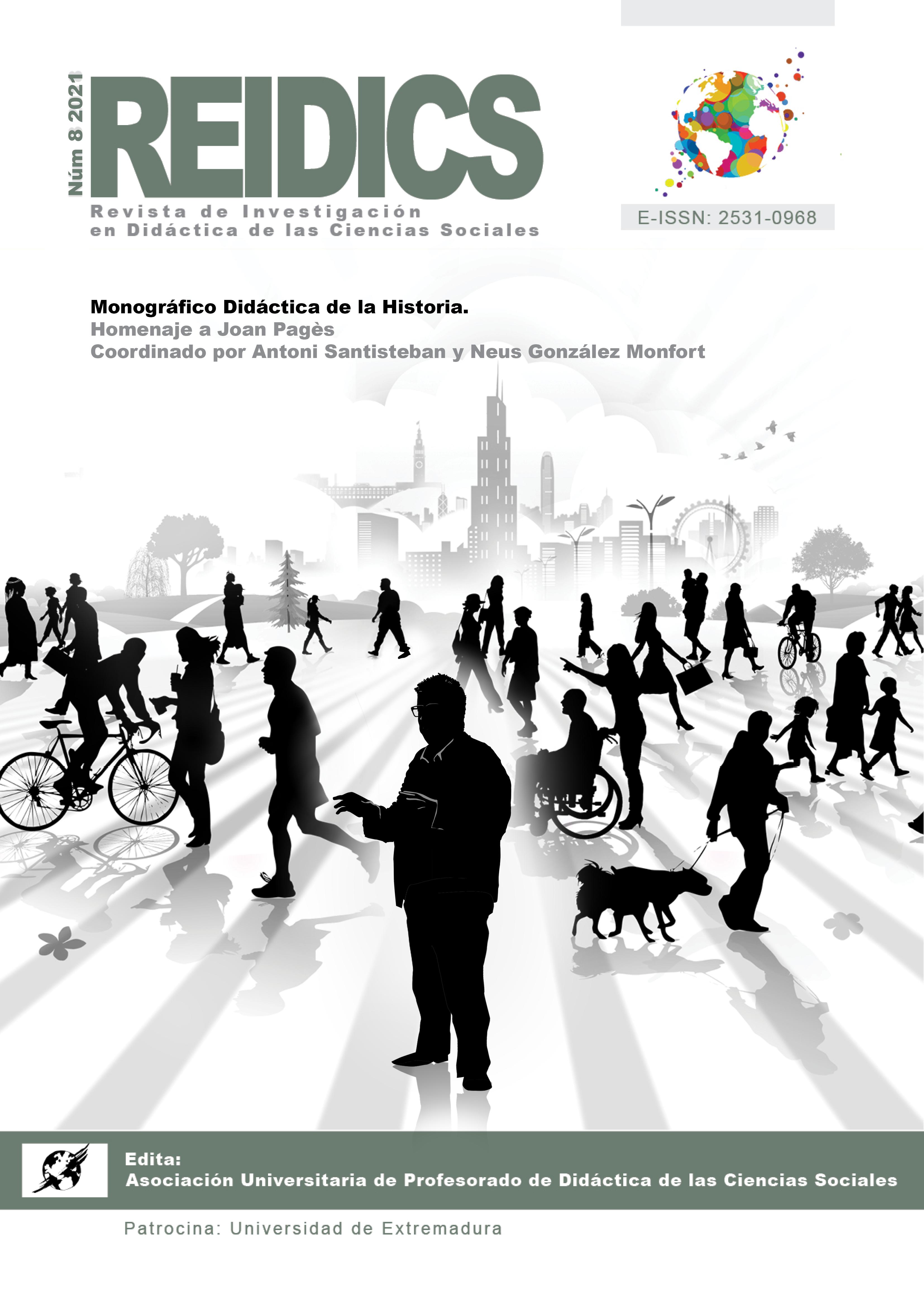From initial teacher training to the teaching of social knowledge of elementary beginnings teachers: a relationship to build
DOI:
https://doi.org/10.17398/2531-0968.08.126Keywords:
initial teacher training, didactic of social sciences, beginning teachers, primary education, purposes of social science teachingAbstract
The article raises the discussion on the initial training of generalist teachers and its relationship with the teaching practices of the social sciences, deployed by novice teachers in primary education. This discussion is based on the results of an investigation in which two cases are analyzed that correspond to beginning teachers working with Colombian public schools. The existing relationships between the purposes that guide the training in didactics of the social sciences of the university program taken by the teachers and the teaching practices of social knowledge that they develop with primary school students are interpreted. The results show divergences between the purposes proposed by the university and those expressed by the professors, with which they are evident in their practices. An initial teacher training is identified that privileges the pedagogical over the disciplinary, emphasizes the official curriculum based on competency standards, which instrumentalizes teaching through projects and didactic units far from the real context of the students. These findings lead to raise again the need to move towards critical approaches in the initial teacher training, committed to education for democracy and social transformation, in which the knowledge of the discipline to be taught and its didactics is taken into account specific; that they are able to reflect, understand and make decisions about why and for what this knowledge is taught and learned in primary education.
Downloads
Published
Issue
Section
License
Aquellos autores/as que tengan publicaciones con esta revista, aceptan los términos siguientes:
- Los autores/as conservarán sus derechos de autoría y garantizarán a la revista el derecho de primera publicación de su obra, el cual estará simultáneamente sujeto a la Licencia de reconocimiento de Creative Commons 4.0 BY-NC-SA que permite a terceros compartir la obra siempre que se indique su autor y su primera publicación en esta revista.
- Los autores/as podrán adoptar otros acuerdos de licencia no exclusiva de distribución de la versión de la obra publicada (p. ej.: depositarla en un archivo telemático institucional o publicarla en un volumen monográfico) siempre que se indique la publicación inicial en esta revista.
- Se permite y recomienda a los autores/as difundir su obra a través de Internet (p. ej.: en archivos telemáticos institucionales o en su página web) antes y durante el proceso de envío, lo cual puede producir intercambios interesantes y aumentar las citas de la obra publicada. (Véase El efecto del acceso abierto).
- Los autores y autoras han respetado la política de autoría de esta revista.







